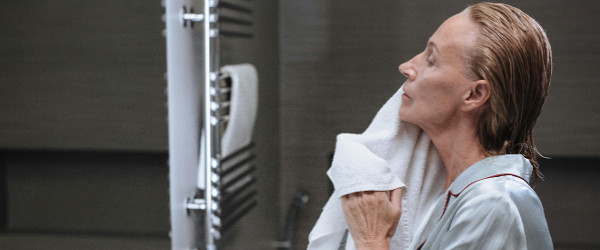Going through breast cancer treatment can take a toll on your skin, making it more sensitive to issues like dryness, itching, rashes, and hyperpigmentation (where skin patches become darker), to name a few. Estrogen blockers like Tamoxifen can affect the skin’s natural ability to stay hydrated and elastic, leading to a drier and more aged appearance. Radiation therapy can result in skin that looks sunburned, flaky, rough, and sometimes itchy or tender to the touch. Skin discoloration from radiation may sometimes be permanent, but skin changes from chemotherapy or immunotherapy usually fade after treatment ends.
While skin problems may seem less urgent compared to serious side effects like heart complications or neutropenia, they can still greatly impact your daily life. A weakened skin barrier can leave you vulnerable to infections, especially during chemotherapy, when the body’s immune system is not as strong. Breaks in the skin from rashes, wounds, or cracks from dryness should be treated immediately to limit the risk of infection. Severe skin damage can also affect your treatment schedule, leading to delays.
Skin toxicities can also impact a person’s quality of life. They can cause pain, affect self-esteem and body image, and even force someone to reveal their diagnosis before they’re ready. Wearing certain clothing can be uncomfortable if you are receiving radiation, and hand-foot syndrome can sometimes make walking or handling objects awkward or painful. Learning how to take care of your skin can help minimize the side effects from treatments.
Skincare Products and Practices
The term “skincare” covers a wide range of products, including cleansers, toners, moisturizers, emollients, serums, and more. During cancer treatment, your skin may become more sensitive to products you’ve used in the past. If this happens, opt for mild, fragrance and alcohol-free products. Avoid rough treatment like exfoliation. If you’re unsure of a product, perform a patch test before using anything with active ingredients such as vitamin C, retinol, hyaluronic acid, or niacinamide. However, depending on the severity of the skin condition, stronger treatments may be prescribed by your doctor or dermatologist.
Here are some ways to protect your skin during treatment:
- Moisturize often to help prevent dryness, cracking and, itching. You can also try using products with oatmeal or even a natural oatmeal soak to help soothe dry skin.
- Avoid hot showers or baths to prevent drying out your skin.
- For hand-foot syndrome, use ice packs in 15–20-minute intervals to help reduce inflammation on the palms and soles of your feet.
- Protect your skin from the sun. While safe sun exposure should be practiced by everyone, certain chemotherapy treatments can cause increased sensitivity to the sun. To limit this, restrict exposure and consistently use a sunscreen with an SPF of 30 or higher, as well as sun-protective clothing whenever skin is exposed.
- If you’ve had a mastectomy, massaging scars with a moisturizer is recommended to help flatten and soften scar tissue. Keep up with any topical scar treatment recommendations provided by your healthcare team, as these can also help reduce the appearance of the scarring as well as support healing.
A Holistic Approach
Apart from taking care of your skin on the outside, it’s also important to remember that a holistic approach can help maintain the skin barrier from the inside as well. Eating healthy foods and a balanced diet, drinking enough water, and getting good sleep helps your skin repair itself and stay hydrated. Gentle exercise improves circulation, and finding ways to manage stress, like meditation or yoga, can also help with skin appearance as well as mental wellbeing. Talk to a nutritionist or a doctor who specializes in integrative medicine to help you find the right diet or supplements to support your skin and overall health during and after treatment.







